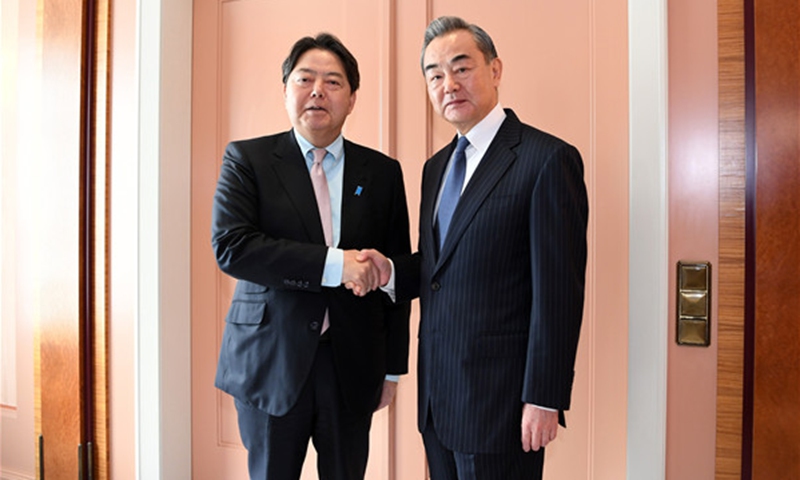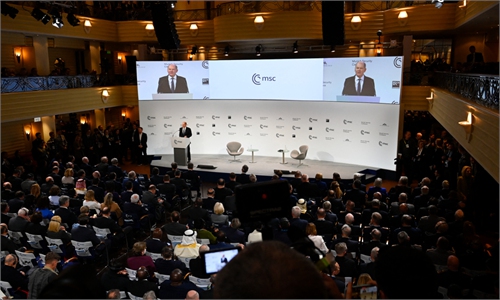China, Japan agree to hold 1st security talks since 2019, 'signaling attempt to stabilize ties'

Wang Yi meets with Japanese Foreign Minister Yoshimasa Hayashi during the Munich Security Conference on February 18, 2023. Photo: Chinese Foreign Ministry
China and Japan have agreed to hold security talks for the first time since 2019 on Wednesday after senior Chinese diplomat Wang Yi met with Japanese Foreign Minister Yoshimasa Hayashi for about 50 minutes during the Munich Security Conference on Saturday.
Experts said the dialogue sends a signal that the two countries are trying to stabilize bilateral relations by preventing the escalation of the existing serious security situation. While it will cover extensive topics, the Taiwan question is likely to be a priority for China given Japan's a series of provocative words and deeds over the question, they predicted.
According to Japan's Ministry of Foreign Affairs, Minister Hayashi and Wang Yi, a member of the Political Bureau of the Communist Party of China Central Committee and director of the Office of the Central Foreign Affairs Commission, welcomed that Japan and China have agreed to hold the Japan-China Security Dialogue, the Japan-China Consultations between Diplomatic Authorities, and the Japan-China Economic Partnership Consultation next week, and confirmed that they will continue close communication at all levels, including at the leaders' and foreign ministers' levels.
"It is important for us to have frank discussions precisely because there are a number of pressing matters in our relationship," Hayashi was quoted as saying by Kyodo News after meeting Wang.
The last time China and Japan held a security dialogue was in Beijing in February 2019, Kyodo reported.
The dialogue comes as Japan follows the US' geopolitical containment of China, including an increase in defense forces, the industrial high-tech blockade against China, which includes semiconductors, and more provocative statements related to the Taiwan question.
The talks will not provide an immediate solution to old and new intractable problems between China and Japan, but they will promote mutual trust and provide a platform to manage divergences and prevent them from escalating into conflict, Da Zhigang, director of the Institute of Northeast Asian Studies at Heilongjiang Provincial Academy of Social Sciences, told the Global Times on Sunday.

